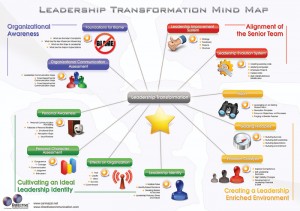By Rose O. Sherman, EdD, RN, FAAN
“Business and human endeavors are systems…we tend to focus on snapshots of isolated parts of the system. And wonder why our deepest problems never get solved.” ― Peter Senge
When senior nursing leaders are asked about qualities that they seek in their emerging leaders, they are quick to mention the importance of systems thinking. Systems thinking is the process of understanding how things influence one another within a whole. In health care organizations, it is the ability of the leader to look beyond one’s own work unit or department and consider how different parts of the organization work together to achieve outcomes. It is also the recognition that small changes in one area can have unanticipated consequences in other parts of the system, if not carefully considered.
Why Systems Thinking Matters in Nursing Leadership
Systems thinking can help us to view events and patterns in our lives through a different lens, because the emphasis is on the relationship between a system’s parts, rather than the parts themselves. Too often, we attempt quick fixes to problems without thinking through the longer-term implications. A way to think about this is the iceberg analogy. With an iceberg ,as is true with many phenomena, only a small part (less than 10% with an iceberg) is visible to us if we have a surface perspective. Much of what is going on in our world is hidden from our view until we dive for a deeper level of understanding.
You are probably already familiar with one process in our healthcare system —- root cause analysis — that focuses on errors through the lens of systems thinking. It is rare that a medical error is the responsibility of one person. Medical errors usually occur when there is a breakdown or failure to have adequate safeguards in a system as a whole. Mind or concept mapping is a good way to view all of the component parts in a system when you are looking to make a change. The diagram below is an example of a leadership transformation mind map.
How to Become a Better Systems Thinker
The best nurse leaders are able to see the whole picture and make connections between events and processes that may even seem counterintuitive. We can all become better systems thinkers by being curious, reading broadly beyond our own discipline and asking alot of questions about the relationship between events. Here are some examples of systems thinking in action:
Kathy Jenkins is an oncology nurse manager on an inpatient unit. In 2011, she began reading reports in the newspaper of a shortage of frequently used chemotheraphy drugs such as vincristine, methotrexate, leucovorin, cytarabine, doxorubicin, bleomycin, and paclitaxel. Sensing the impact that this could have on continuity of care, costs and lengths of stay for her oncology patients, Kathy called a meeting of her oncologists and pharmacists to plan a strategy to have chemotherapy drugs ordered prior to the admission of patients to avoid delays in care.
Maria Sanchez has been the director of women’s services for a large academic medical center for the past ten years. In 2008, she began to note a decline in the number of deliveries. Maria researched what was happening and found that the economic downturn had caused a notable decrease in US births. She has been monitoring the situation for the past four years. She is very aware that Generation Y born between 1980 and 2000 is a large generational cohort that is reaching their childbearing years. This could significantly change demand for services over the next five years.
The Outcomes of System Thinking
Systems thinking is being able to step back as the nurse leaders above did, and attempt to see the whole picture rather than focusing on just the parts (a lower rate of deliveries, longer lengths of stay in oncology). When you are able to do this, you begin to see the interdependency among different parts of the system and patterns begin to emerge. Nurse leaders today work in environments where there is bewildering uncertainity and staggering complexity. Problems are rarely simple and clear-cut. We often see leaders attempt to cope by demanding simplicity and certainity but this type of thinking can lead to incorrect assumptions. Success in these environments requires a different way of thinking. Peter Senge, an international thought leader on systems thinking, suggests that leaders need to shift their mindset to systems thinking to deal with the complexities of dynamic social systems. It is through systems thinking, that nurse leaders can identify new possibilities and insights to deal with our most difficult problems.
Read to Lead
Senge, P. (1990). The Fifth Discipline. New York: Doubleday.
Systems Thinking Introduction Youtube
© emergingrnleader.com 2012




 LinkedIn
LinkedIn Instagram
Instagram